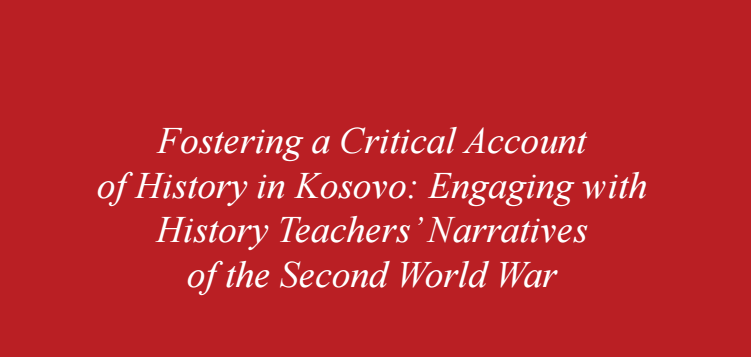A Research by the Kosovo Oral History Initiative and the Center for Comparative Conflict Studies
This report provides unique knowledge on actual history teaching in Kosovo high schools, with a focus on the teaching of the Second World War. The findings are based on in-depth interviews with teachers conducted by Anna Di Lellio, Orli Fridman, Srdjan Hercigonia and Abit Hoxha in the two separate educational systems operating in Kosovo, one governed by Kosovo authorities (Albanian high-schools), and the other by Belgrade (Serbian high-schools).
To broadly summarize the findings of the report, we found that teachers from both groups are “custodians” of their respective national narratives; that they are mistrustful of the influence of institutional authorities – foreign governments, international organizations, their respective domestic Ministries – on their teaching instruments and practices; and that they use personal and communal stories in their classroom communication, which correspond to political divisions running underneath the apparent homogeneity of national narratives.
Our conclusion is that what history teachers need in Kosovo is better scholarship. However, change cannot come from the outside. In order to be effective, change must come first from the inside. Albanian and Serbian researchers need funds to study abroad, conduct archival research in the region and beyond, and produce a new body of literature of the history of the Second World War that addresses the fundamental aspects of this conflict, which national historical narratives often exclude or distort.
To read the full report please click here.
